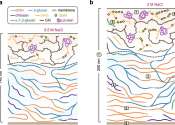Climate engineering could slow Antarctic ice loss, study says
Scattering sunlight-reflecting particles in the atmosphere could slow rapid melting in West Antarctica and reduce the risk of catastrophic sea-level rise, according to a study led by Indiana University researchers.









